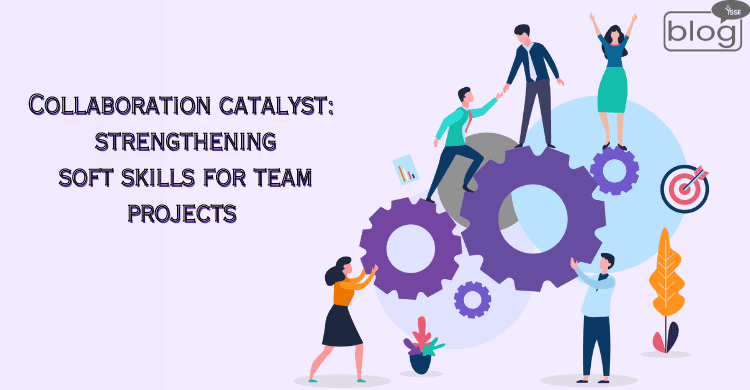In this changing landscape of the modern time workspace, collaboration has become a key to success. The ability to work together in a team not only fosters innovation but also increases productivity and overall job satisfaction. When talking about collaboration we need to understand that successful collaboration isn’t about individuals or technical support. It’s about the cultivation of soft skills. Attributes such as communication, empathy, adaptability, and problem solving skills are the foundation pieces that together create teams into high performing units capable of complex tasks. With this blog we dive into the pillars of soft skills, their significance and strategies to strengthen them for a strong collaboration.
PILLARS OF SOFT SKILLS :
- Communication: Ensures that team members understand project goals, team’s objectives, share ideas effectively.
- Adaptability: To pivot seamlessly according to the evolving circumstances.
- Empathy: Through this team members understand each others emotions, foster trust and create a supportive environment.
- Problem solving: An essential tool to overcoming obstacles and achieving team goals.
- Time management: It is very crucial to organize task and managing those tasks effectively, in which time management it the key tool.
- Resilience: Setbacks are very common, but what’s important is to bounce back to reach ultimate goal.
- Conflict resolution: Addressing and resolving disagreements in a respectful manner is when conflict resolution comes into play.
STRATEGIES TO STRENGTHEN SOFT SKILLS
Some people excel at soft skills but others may need intentional guidance to enhance their skill.
Here are some strategies to strengthen soft skills :
Training and Development Programs: workshops, seminars, or online courses focused on soft skill development are a great source. Areas such as communication techniques, conflict resolution strategies, and emotional intelligence are the main focus for these training programs.
Peer-to-Peer Learning: A great strategy for this is peer to peer learning. It essentially means teaching each other through communicating within a team, providing feedback and constructive criticism. This greatly helps in strengthening team bonding.
Simulation Exercises: simulation exercises are practices that can help by engaging in real-life collaboration scenarios. Making sure team members practice their soft skills in a controlled environment. These exercises make sure that members learn from both their success and failures.
Feedback and Reflection: an essential aspect of growth is revising and feedbacks.we learn from our mistakes. Team leaders can offer constructive feedback to team members, Additionally, creating a culture of reflection allows individuals to see their own performance and identify areas for development.
Cross-functional Collaboration: collaboration across different departments can offer diversity of perspective. By working with colleagues from different backgrounds, team members can broaden their horizons.
In conclusion, it is needless to say that soft skills are the foundation of effective collaboration in team projects. Skills such as communication, empathy, adaptability, and problem-solving are invaluable for each member. Individuals can become catalysts for collaboration, driving team success and achieving collective goals. Organizations can empower their teams to cultivate and leverage these critical skills, maintaining a culture of collaboration in the workplace. As we pave through this modern day work environment, we need to master the basic skills that help us navigate through life smoothly at the end of the day.
To read more blogs like this click here
Writer :
Sadia haque
Intern
Content writing department,
YSSE

